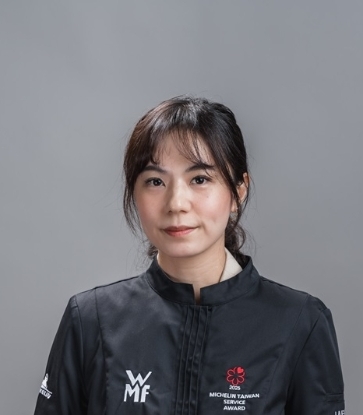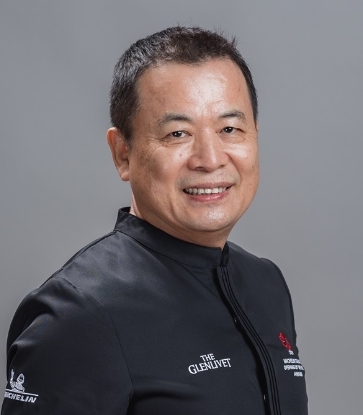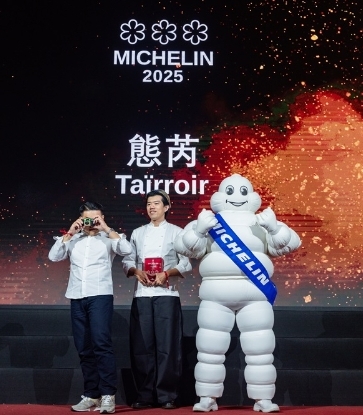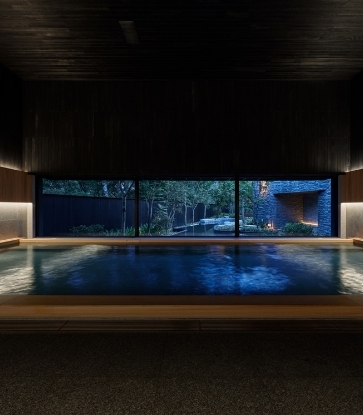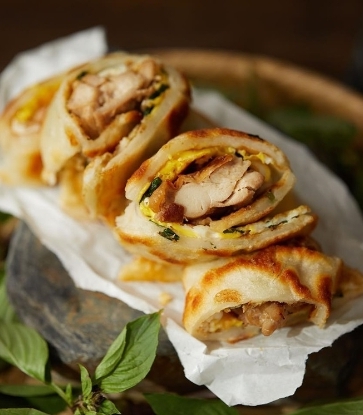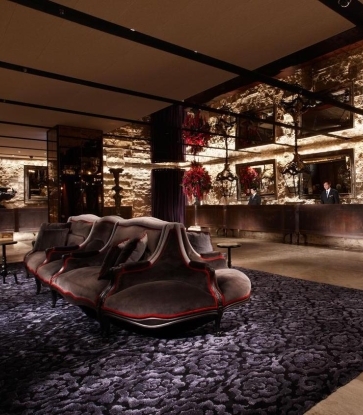In the United States, there are immigrant restaurant stories and there are the children of immigrants restaurant stories. Kato, in Los Angeles’s Sawtelle neighborhood, is both. It’s also the tale of a young, talented chef who stumbled into the gig out of obligation, and ended up earning him and his family a MICHELIN star.
But first, you have to find the place. It might take a second, the minimalist but lively 27-seater is tucked into a corner of a strip mall on the West Side, and a little recessed. It’s in close proximity to UCLA, which is important, and more on that later.
Kato’s story begins in Taiwan, the hometown of chef Jon Yao’s parents. “They moved here when they were my age and they never really went back,” he says. “I think their way of reconnecting with where they came from was when my mom made Chinese or Taiwanese food.” Young Jon would watch his mother and grandmother in the kitchen, learning to make his favorite dishes like fried egg over rice, practicing to get the edges crispy just so.
His parents set up a rigorous life as interior designers in California. “They worked a lot and did a lot of manual labor—custom-made upholsteries and a lot of others.” He attended college for cultural anthropology, ostensibly studying to be a lawyer, accountant or some other white collar job. But then he caught the cooking bug after summers of working in kitchens, and his parents did not take the news well. “They were like, ‘You’re literally going in the opposite direction of what we wanted you to do,’” he recalls. “‘We wanted you to be at a desk for eight hours a day and now you’re standing for 15 hours.’”

He worked in the kitchens at Alma in L.A. and at Benu and Coi in San Francisco. And just when he was ready to take off to his dream of staging in Copenhagen at Relæ, by Noma acolytes, duty called. His parents, along with a family friend who was a professor at UCLA, were opening a casual café and needed assistance. “[The family friend] had a lot of Asian students and there were not that many Chinese restaurants in L.A. proper, especially near the West Side at the time,” Yao says. “My mom makes pretty good homemade food, so the plan was to translate this into some sort of lunchbox business.”
The logistics and financials didn’t quite add up and the lunchbox concept never came to fruition. But they still had a five-year lease on the space in the corner of a strip mall, close to UCLA. And that is how, just shy of his 25th birthday, Jon Yao found himself at the helm of his own restaurant. There was no liquor license, and added pressure to sustain his parents’ business, but it was also a dream job: the latitude to do whatever he wanted with the menu. For Yao that meant navigating his California childhood, Taiwanese background and its Japanese influence through the dishes. “I feel like Kato is just like an evolution of how I’m discovering my heritage.”
His tasting menu is primarily seafood, and changes with what is in season, which has to do both with the limited space in the kitchen and that Yao just likes seafood. On the current menu is the three cup abalone, an interpretation of the traditional Taiwanese three cup chicken, made with equal parts sesame, rice wine and soy. “When I eat that dish in Taiwan I always think about the heritage chickens that they have there,” Yao says. “They’re super chewy but they’re so flavorful. You don’t really get that sensation with typical American chicken so we wanted to do something with some bite.” He substituted abalone, sourced fresh from Northern California, and added another reason for its use. “For Chinese people, abalone is a huge luxury.”

The one constant on the menu is a steamed fish dish, a comforting Chinese staple resembling the one his mom used to make. “The first time I served it I thought there’s no way anyone’s gonna like this, this is way too simple,” he says. “But it’s so soulful and comforting that people eat it and pick up on it.” The current iteration is a Spanish turbot with a ginger and scallion relish and a turbot tea flavored with ginger, aged rice wine and aged soy. “I always want to take the fish off but I just feel like it really represents what we do. Simple, well-executed and done in our own-way.”
When Kato’s lease is up Yao plans to open in a new location more suited to his growing arsenal of self-taught ideas—larger and, ideally, with an alcohol license. But being at the helm of an empire isn’t a goal. “I never saw myself as like a David Chang with a bunch of restaurants,” he says. “I always saw myself with one restaurant to live and die by.”
And if that doesn’t work out, his dad still has other plans. “I just got off the phone with him a few hours ago. He said, ‘Maybe you should get into writing or something,’” he laughs. “‘Something where you don’t have to stand.’”
Photos courtesy of Kato.





